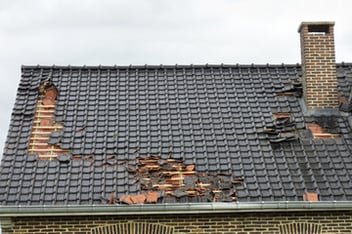Some homeowner’s insurance policies include the “Right to Repair” or “Option to Repair” clause in them, which can give your insurance company way too much control when it comes to repairing your home. If your insurance policy has this controversial clause, you may end up in a major homeowner’s insurance claim dispute with your insurance company.
Insurance Companies Can Take Control of Your Repairs
If you have a Right to Repair clause in your insurance policy, your insurance company has the right to repair your property damage. They get to decide the extent of the damages, how they will get fixed, and who will fix them. You do not get a settlement check from your insurance company, instead, they pay the contractors directly.
The contractor is not obligated to communicate anything about the repair process to the homeowner, since the insurance company is who hired them to complete the work. The contractor is expected to send all of their questions, the ones they would normally ask the homeowner, through the insurance company, who may or may not have an accurate answer.
The Insurance Company Becomes the Guarantor
If something goes wrong with these repairs, the insurance company is the guarantor for the work that is conducted, so if something is not properly fixed, the insurance company is financially responsible. The insurance company may tell you that it is the contractor who is responsible for guaranteeing the repairs, but it is the insurance company.
Negotiating Tactic
MOST insurance companies are not likely to actually invoke the Right to Repair clause, because it means they have to be responsible for any repairs, but they will frequently use it as a negotiation tactic. Instead, they will sometimes use this as a negotiation tactic to attempt to pay you less than what you are owed.
The Problems with the Right to Repair
With a normal insurance policy, the insurance company will just pay you directly and you use that money to pay for the repairs on your own.
The Right to Repair is not a clause you want to have included in your insurance policy. If your insurance company invokes the Right to Repair, they use their own contractors, and you have zero control over who is fixing your home or how they are fixing your home.
The problem is that you can end up with subpar repairs, partial repairs that only fix the surface, unlawful repairs, repairs without permits, and more. This can end up being a total nightmare for you if your insurance company invokes the Right to Repair clause on your insurance claim.An example of poor repairs happening is the case of Lisa Kornheisl in Palm Beach, Florida. Last year, her dishwasher began leaking and her kitchen sustained mold damage. Two years earlier, her insurance company had repaired the exact same leak, but they invoked the Right to Repair clause, so Kornheisl had zero control over the repairs. The insurance company did not invoke the Right to Repair the second time around, they instead wrote her the check to allow her to repair the leak and mold damage on her own.




 Storm Damage
Storm Damage  Property Damage
Property Damage Appraisal Services
Appraisal Services Contact Us
Contact Us




.jpg)
 claims@ucspa.com
claims@ucspa.com Mon-Fri: 9:00am-5:00pm
Mon-Fri: 9:00am-5:00pm